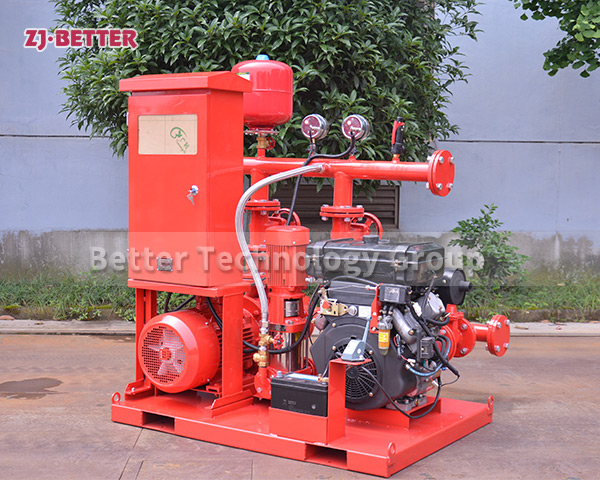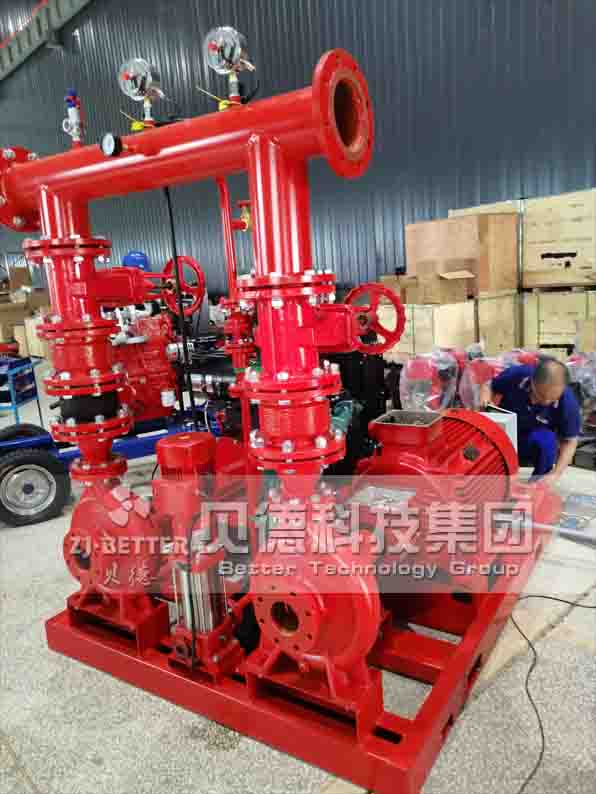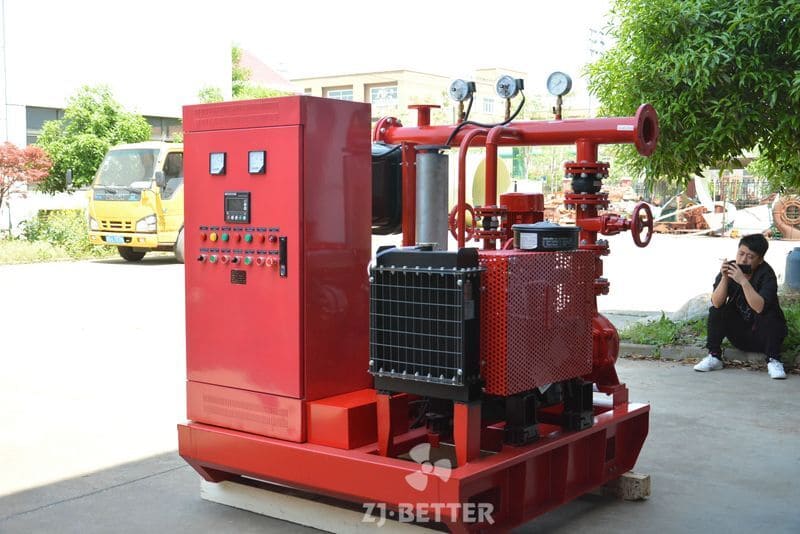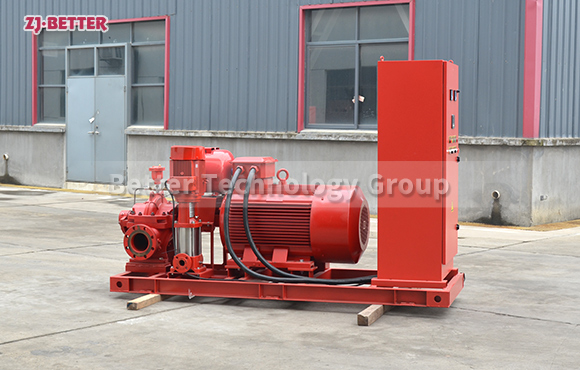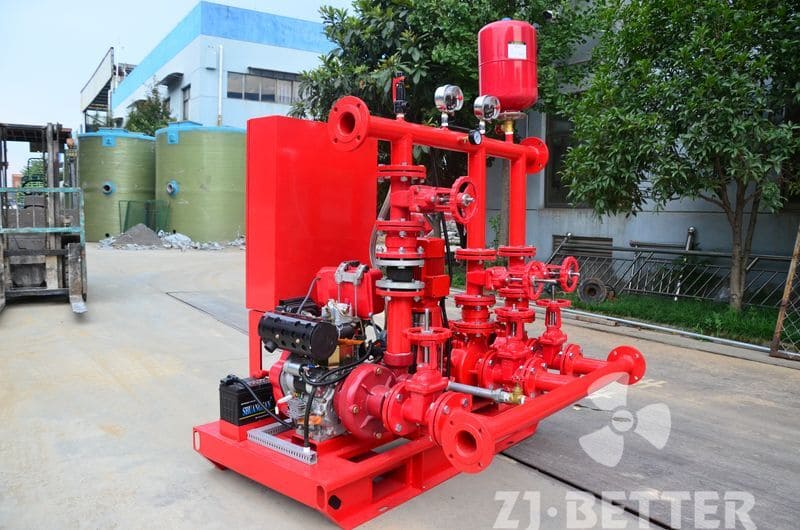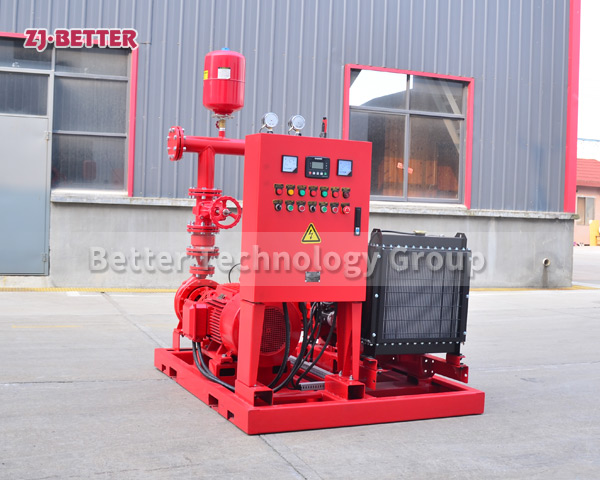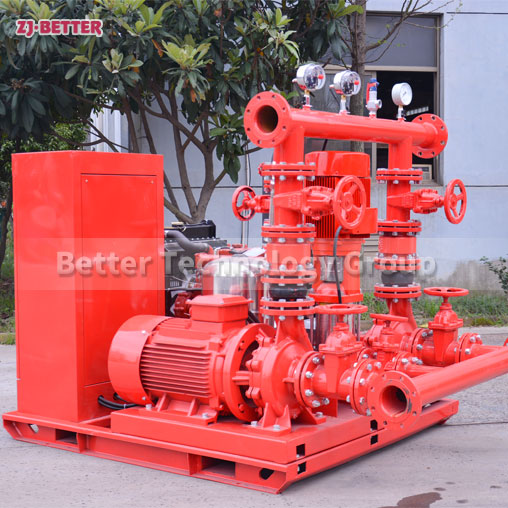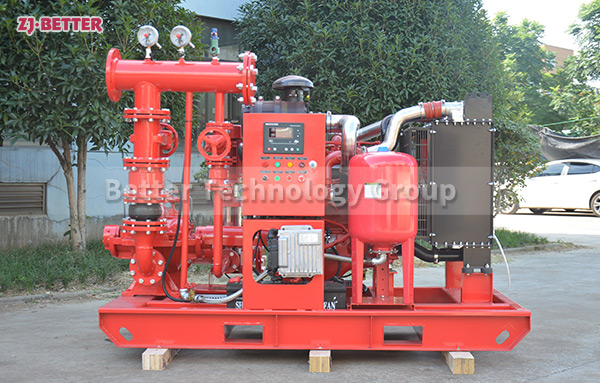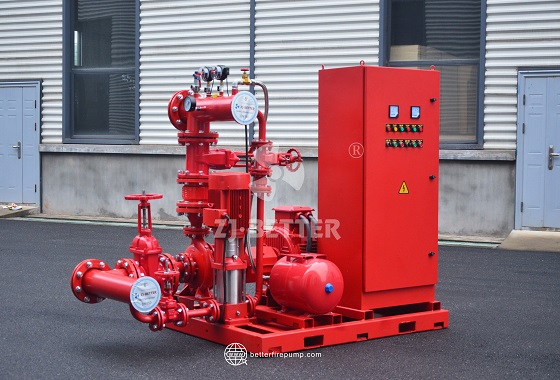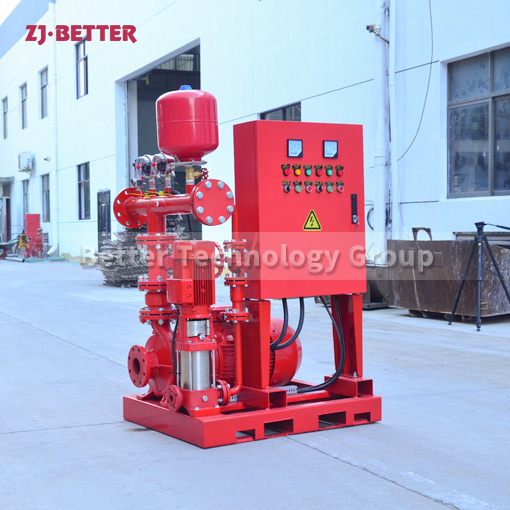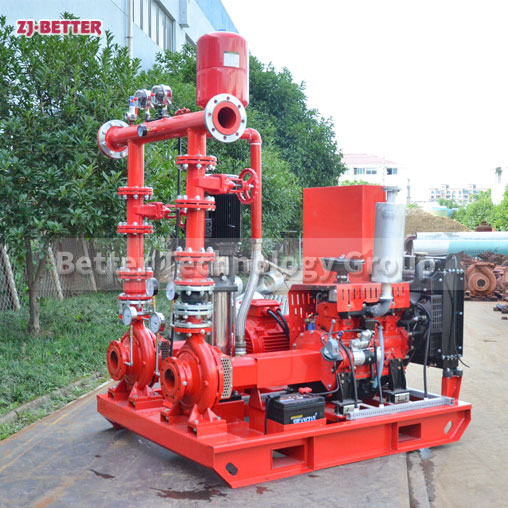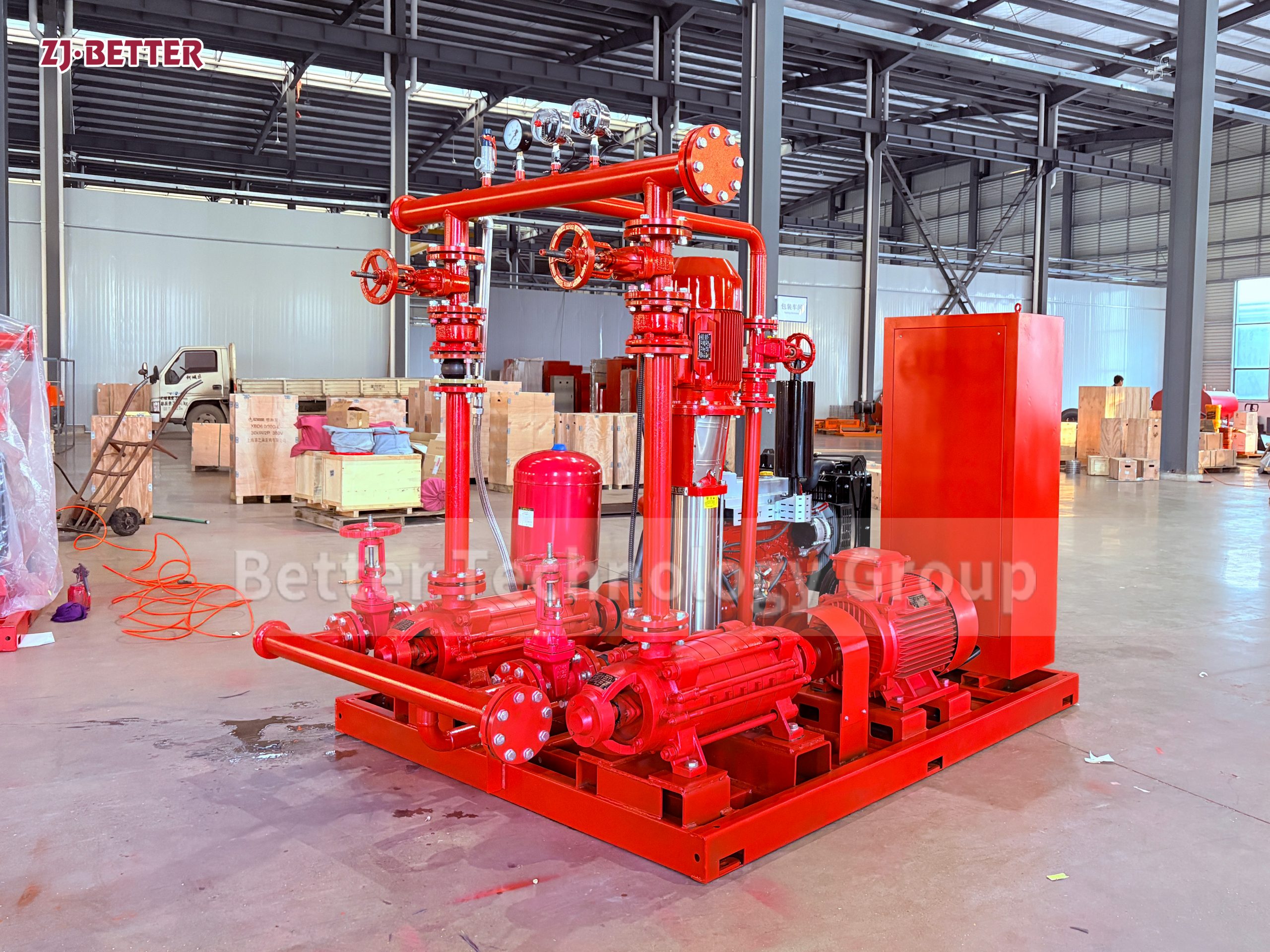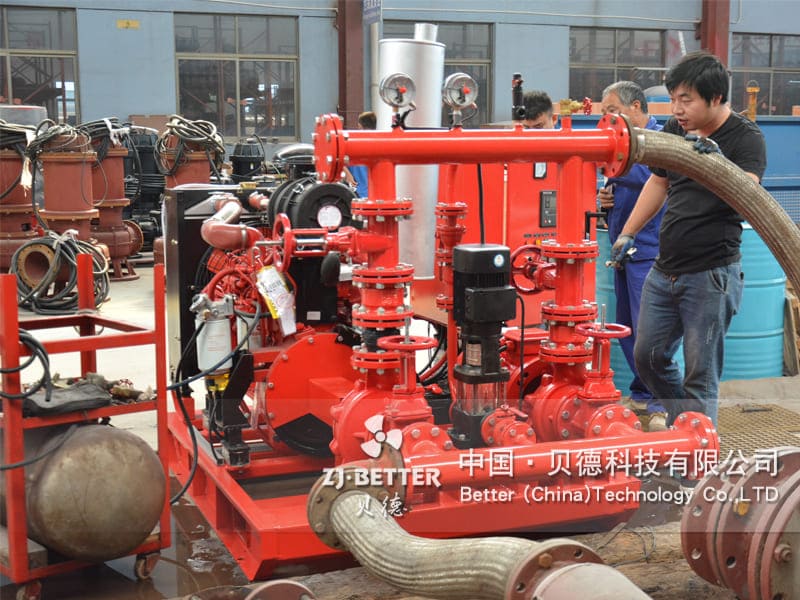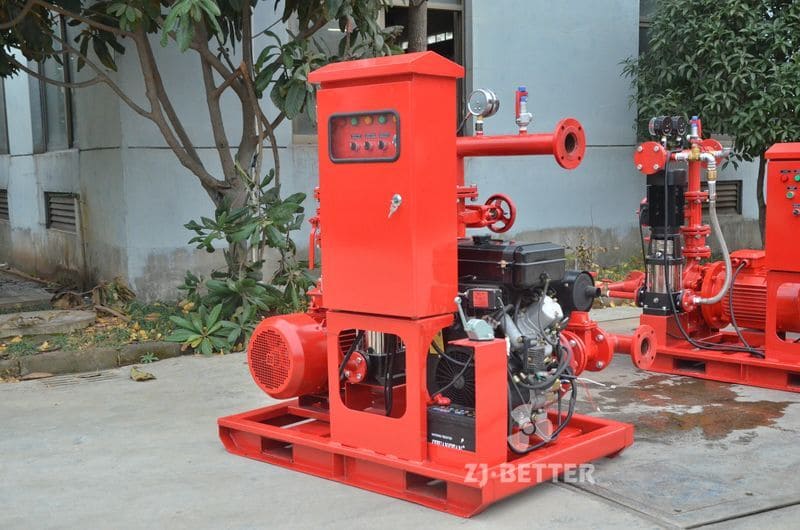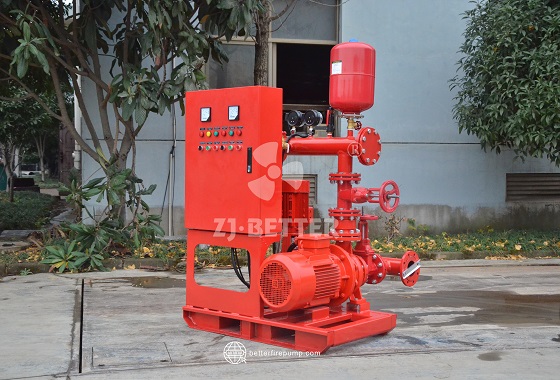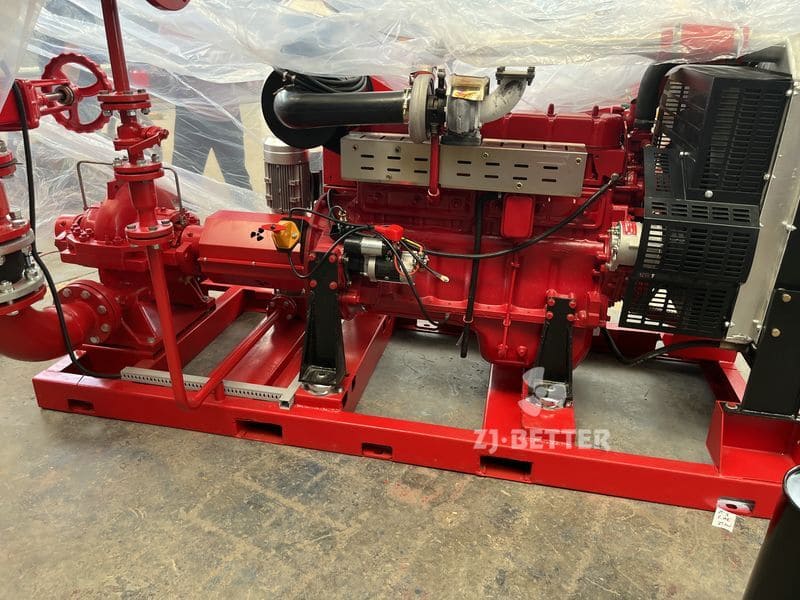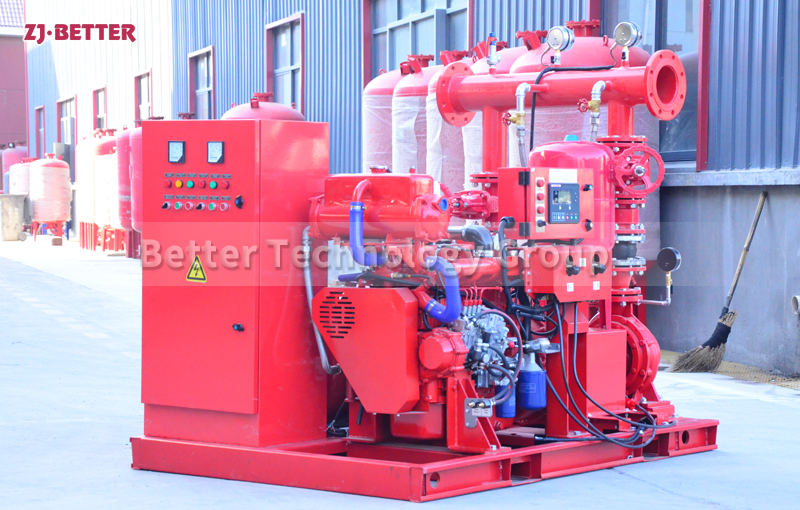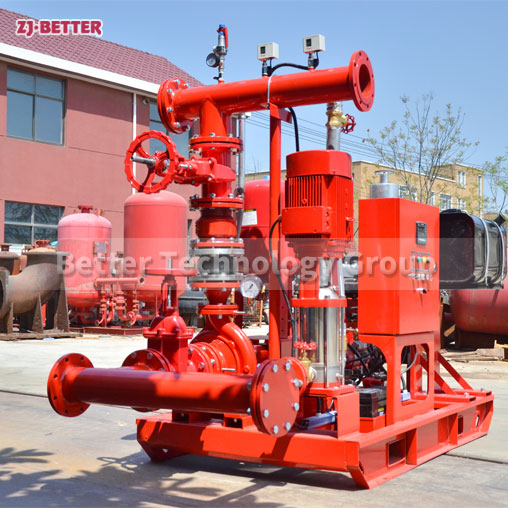Diesel fire pump is a great helper in fire emergency
The biggest difference between the diesel engine fire pump and the electric water pump is that it has its own independent power supply system, which can ensure the normal operation of the project without power or power supply. Its role is self-evident, and it can be said to be a great helper in fire emergency .
Structurally, the diesel engine fire pump is mainly composed of diesel engine, fire pump, connection device, fuel tank, radiator, battery, intelligent automatic control panel, etc. And at present, the diesel engine fire pumps are equipped with the time-limit automation function of the control cabinet. The start and operation of the diesel engine completely rely on the traditional operation mode, and realize the functions of remote control, automatic start, ultra-low voltage start and automatic alarm.
In terms of industry applications. Diesel engine fire pumps are widely used in emergency water supply for large-scale projects such as high-rise buildings, steel plants, chemical plants, hotels, and water works.

